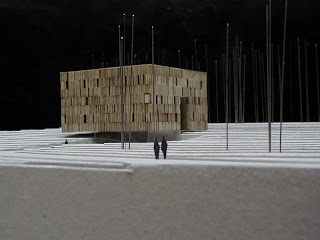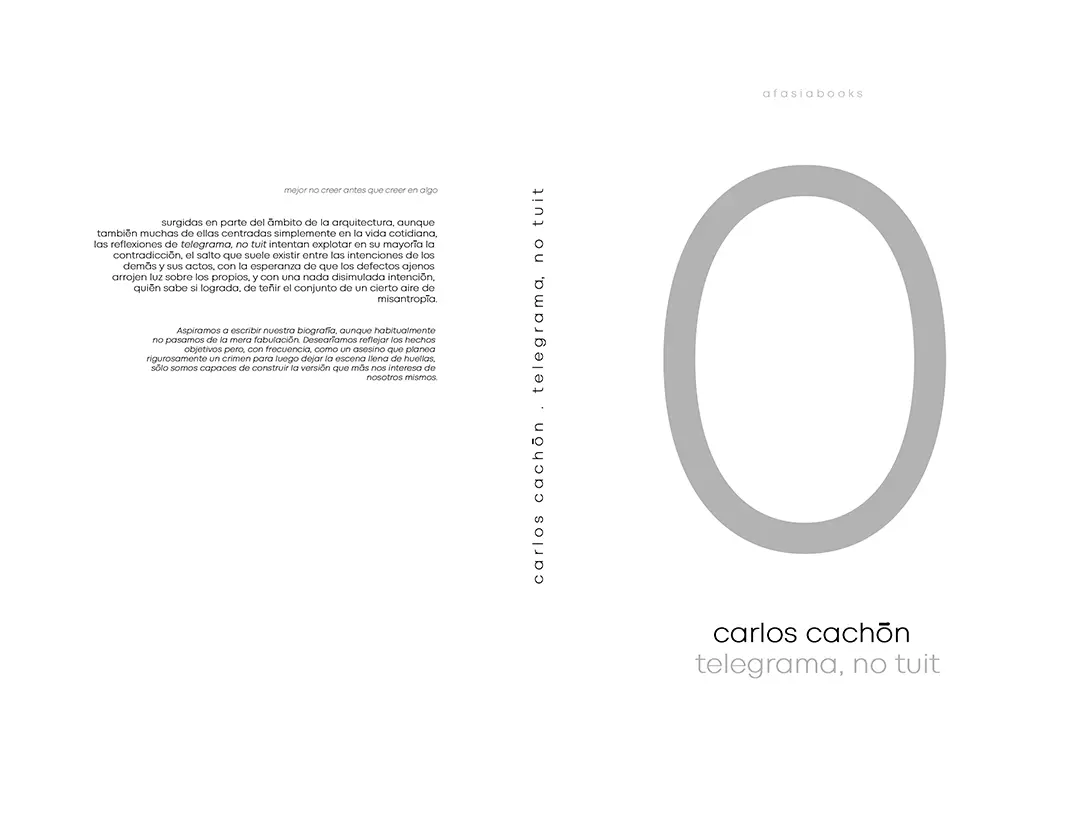ensamble . photos: © ensamble . + detail . archdaily
The project of the Musical Studies Centre in Santiago de Compostela is located in the Vista Alegre property, one of the most relevant green areas in the surroundings of the old quarter of Santiago.
Surrounded by other buildings linked by academic activities and research practices, it is dedicated to postgraduate studies for musical improvement, intended for the training of the Galician Orchestra musicians.
The perception of the building at different scales defines levels of comprehension. From the distance, the building lets itself fall on the land. It sticks, without any continuity, to a carpet of green grass that makes up the surface of the plot of land, cutting out its silhouette in the space of the garden in a strong definitive way, like a rock with cubic will. If we look from a middle distance point, we gaze the border, the limit that before shaped an almost perfect form, leads to the lack of definition; the trace of a broken line appears, distorting edges, and a superficial vibration of light, material and shadow fixed to a rhythm of seven parts. We move closer and the shape is broken; the pieces jump, expressing its abrasive materiality and defining holes which provide the constructive scales of the building.
The expression of the project comes from the contraposition and duality that, in the scale, the timbre and its materials, build the space reaching complexity. Distortion, superimposed to harmony, evokes the purity of both spatial conditions bringing about interest both in material and spatial terms. Beyond canons, the building wants to develop architectonic concepts within a simple composition and geometry, taking in the spatial resonance from the echoes of its limits, that in the outside are represented by the oak wood, the garden, the water and the Galician light, and in the interior by the smooth stone surfaces that confi gure the space. The aims on the project are a deeply rooted to Galicia architecture, considering its cultural and atmosphere particularities, emphasizing the memory of the place. It seems that the building was always there.

































